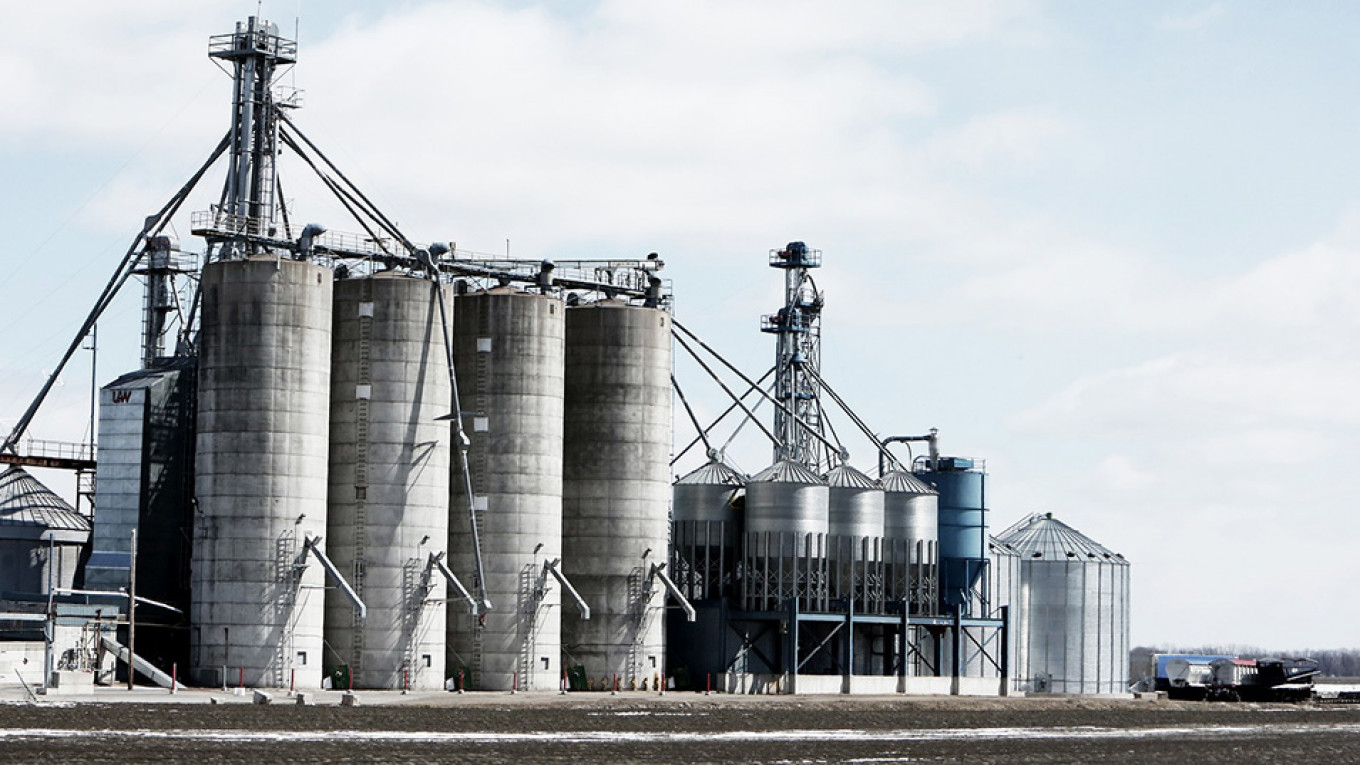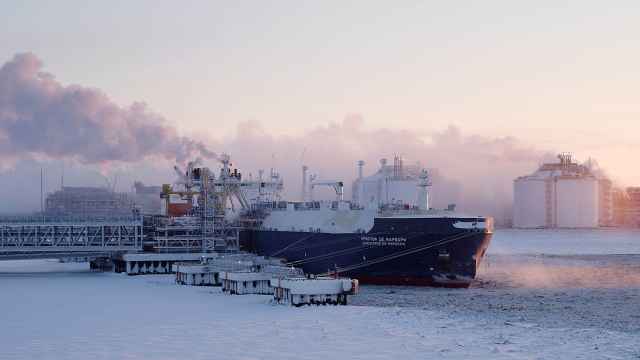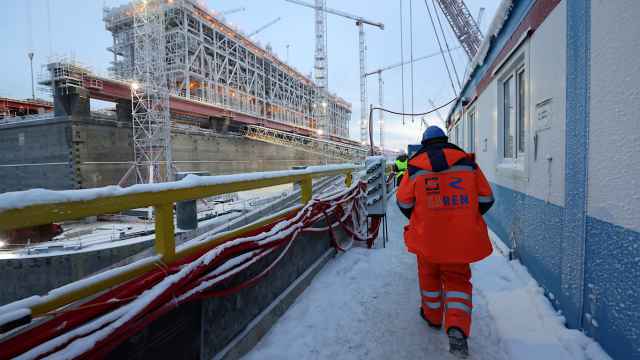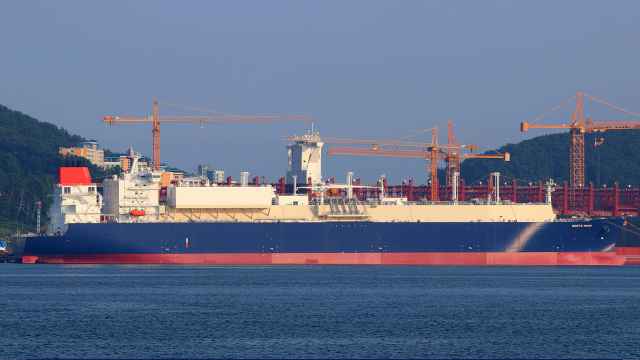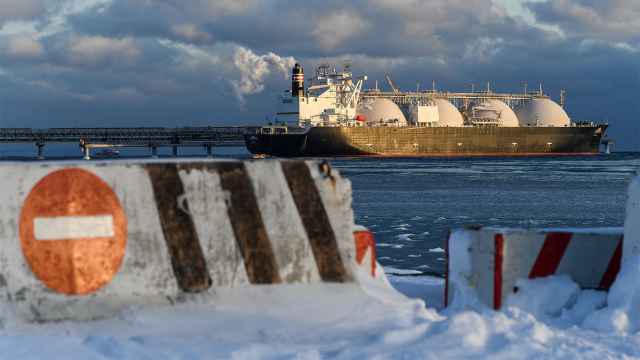Royal Dutch Shell pulled out of a project to build a Russian liquefied natural gas plant partly because Gazprom suddenly added another partner with links to an ally of President Vladimir Putin, according to five sources.
After three years work on the Baltic Coast project, Shell discovered that Gazprom was bringing in a company linked to Arkady Rotenberg, who is on a U.S. sanctions blacklist. The sudden change in the line-up of partners was one of the key factors contributing to Shell's Wednesday announcement that it was pulling out of the project, according to three sources close to Shell and two other sources familiar with the project.
Asked to comment on the reasons for withdrawing, a Shell spokesman said it had nothing to add to a previous statement that said its exit followed Gazprom's announcement last month of its final concept for the project. Gazprom spokesman Sergei Kupriyanov said the company was not commenting.
According to the two sources close to Shell, Gazprom did not consult with Shell about bringing in the firm, which is called RusGazDobycha, but instead presented it with the plan as a fait accompli.
With RusGazDobycha's arrival also came changes to the configuration of the project itself, which Shell did not feel comfortable with, all of the sources said.
It became untenable for Shell to stay in the project "and that was clear from the moment that Gazprom announced it was going to build the plant together with RusGazDobycha," said one of the sources familiar with the project.
A RusGazDobycha official did not respond to a request for comment. Asked if the presidential administration had any role in RusGazDobycha's entry into the project, Kremlin spokesman Dmitry Peskov said it was a question for the companies involved.
The sudden shift in the project underlines the unpredictability of doing business in Russia -- even for a firm like Shell with a long pedigree of successful cooperation. It also shows how Rotenberg's business empire, focussed mainly on construction and engineering, is expanding into the energy sector.
Shell said that its other joint projects in Russia — chief among them the Gazprom-led Sakhalin-2 LNG plant — would be unaffected by its exit from the Baltic LNG project.
But Shell's involvement in Sakhalin expires this month. Unless the Russian government decides to extend the Sakhalin deal, Shell's portfolio of Russian projects will be left looking thin.
The Russian government has given no indication as to whether it would extend Shell's Sakhalin contract.
"Digging your own grave"
One of the problems for Shell was that Rotenberg, a long-standing friend of Putin and his former judo training partner, was under sanctions and that created sanctions risks for Shell too, according to one of the sources close to Shell and the second source familiar with the project.
For Shell, partnering with a Rotenberg-linked firm was tantamount to "digging yourself your own sanctions grave," said that source.
But the other sources said the primary issue for Shell was the change in the configuration of the LNG project.
RusGazDobycha is 100 percent-owned by a firm called National Gas Group (NGG), according to the Spark database, which collates official data from the tax agency and the state statistics agency.
Until November 2016, Rotenberg had a 51 percent stake in NGG, the database shows. The majority owner of NGG now is Artyom Obolensky, who is also chairman of the board of SMP Bank, controlled by Arkady Rotenberg and his brother Boris.
A representative of Arkady Rotenberg, asked about the Baltic LNG project, said Rotenberg "has no interests in this business."
The brothers were both added to the U.S. Treasury Department's sanctions blacklist in March 2014.
The sanctions designation stated that the brothers had amassed enormous amounts of wealth during the years of Putin's rule, and that they had received high-price contracts to carry out work for Gazprom and the 2014 Winter Olympic games in the Russian Black Sea resort of Sochi.
A Message from The Moscow Times:
Dear readers,
We are facing unprecedented challenges. Russia's Prosecutor General's Office has designated The Moscow Times as an "undesirable" organization, criminalizing our work and putting our staff at risk of prosecution. This follows our earlier unjust labeling as a "foreign agent."
These actions are direct attempts to silence independent journalism in Russia. The authorities claim our work "discredits the decisions of the Russian leadership." We see things differently: we strive to provide accurate, unbiased reporting on Russia.
We, the journalists of The Moscow Times, refuse to be silenced. But to continue our work, we need your help.
Your support, no matter how small, makes a world of difference. If you can, please support us monthly starting from just $2. It's quick to set up, and every contribution makes a significant impact.
By supporting The Moscow Times, you're defending open, independent journalism in the face of repression. Thank you for standing with us.
Remind me later.



